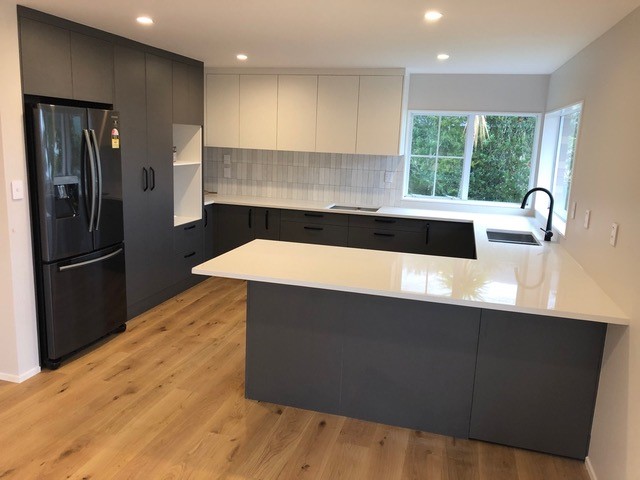Choosing the Right Builder for Your Home Renovation
August 4, 2020

You are ready to get your home renovated and dreaming how your house will look after renovation. It is time to hire the right builder for the task. Perhaps you would like to check with your family and friends for references. However, just asking for references isn’t enough, as asking someone a favour could also mean that they will place a lower priority on your work and take longer for the work to get done.
Here are some things you would need to check before you finalise the builder for your home renovation.
Licence and Insurance
It is good to know if the builder is qualified, licenced and insured. Some builders’ licences may have expired or may have been revoked. It is best to ask them. Be careful not to engage builders that refuse to give you information on whether they are legally permitted to do such construction.
Search for a list of licensed and insured builders online. A good place to check would be the Licensed Building Practitioners website – https://www.lbp.govt.nz/ It even provides information about LBPs that have been disciplined for the past 3 years.
Things to Look for in Builders
- Expertise: Find out if they have expertise in the specific area you need. If they have experience only in fencing and decks, they may not always be the right choice for renovations and extensions. Find out how long they have been in business. Have they worked on the size and type of building project you have?
- Portfolio and References: Check out their previous jobs and ask to speak to their present or past clients. Are they willing to supply testimonials or referees of completed projects? Speaking to a present client would be even better.
- Location: Have they undertaken projects in your area? Having a local builder has its advantages. Their knowledge of details in local planning, having contacts with builders’ merchants and local licenced or registered tradespeople can be an advantage.
- Recommendations: Does your designer have a recommendation? Do tradespeople, merchants, friends and family recommend them? If they do, it is a plus point. When you hear about a builder through word of mouth, make a visit and check for yourself if they would be a good fit for your job before considering to hire them.
- Manpower: Does the builder have the necessary manpower to get the job done?
Clear Tender Package
For large projects, it is beneficial to prepare a ‘Tender Package’ with the help of an architect or designer. When you have a tender package, your builder will know the exact details of the job and get a better understanding of what your expectations from this project are. Experienced builders can also recommend architects who are very good at meeting client expectations.
Your tender package would have the following details:
- Outline and Scope: List out all the work that the builder will have to carry out. If you are contracting to a third-party tradesman or doing some of the work yourself, you would need to make it clear.
- Building Plan: Include all the engineering documents, soil test reports and all available details so your builder knows the extent of work involved for this project. This will help them give an accurate cost estimate and also plan for labour keeping a realistic timeframe for completion.
- Building Schedule: Make a list of the materials, fittings and fixtures you would like to use for your renovation. Giving a detailed list will ensure that costs do not escalate and there are no nasty surprises later. Ask them to give a quote with a clearly itemised list of the materials and labour involved mentioning all the stages of construction.
Collect Quotes from Different Builders
It is a general rule to get quotes from at least 3 builders and then compare them. Be careful not to quickly agree to the lowest price quote as it could lead to problems later. Be especially wary of the ‘too good to be true’ kind of quotes, they could be cutting corners to give you the lowest figure. Check the prices in the itemised list and ensure that the quote is accurate and realistic so that problems in the future can be avoided.
Get a Building Contract
Miscommunication is one of the major problems both homeowners and builders face. Having a contract that records the extent of the work to be carried out, the agreed price and additional points of reference is a safety for you in case any dispute arises. Check out various standard proforma construction contracts to find the best one for you. Once you get your contract ready, it is good to get legal advice before you sign it. This is especially helpful if you are taking a construction loan.
The ideal building contract would include the fully itemised list of quotes that you agreed on. You would need to list out the materials to be used and the works that need to be carried out. Mention all the fittings in the contract such as hot water, gas supply, light fittings, driveways, roof insulation, etc. Put down in writing that the builder has to inform you if materials will be substituted or if there are any changes to the building schedule.
Include the date when construction will start, the key construction stages for payments to be made from your end and the completion date of the project too. Mention the required quality level and finish you expect from the project along with the contract terms.
Updates During Construction
While work is on, it is good to ensure that you are regularly receiving updates on the progress. Get the builder to agree to send you photos showing the progress of your house at fixed intervals. Ask them the time frame for drawing up plans and how long it will take to get building consent. Find out the responsible person who will be communicating with you. Make a progress document so everyone involved can refer to it and ask them to update any changes in it.
On your part, it is necessary that you are in touch with them throughout the building process. Be in touch with your builder through email, phone calls or text messages. It is good to even visit them in person to have a good idea about what is going on. Keep things transparent so everything goes on smoothly. Ensure that all your payments are on time.
When the Building Work is Complete
Before you close the project ensure that you have received all the paperwork, certificates (such as energy work certificates from the electrician or gasfitter) and warranties related to your project. Having them in order will help you get the official council sign-off on the work.
Doing your homework before you engage a builder will ensure that you have a smooth and trouble-free time while renovating your house.






